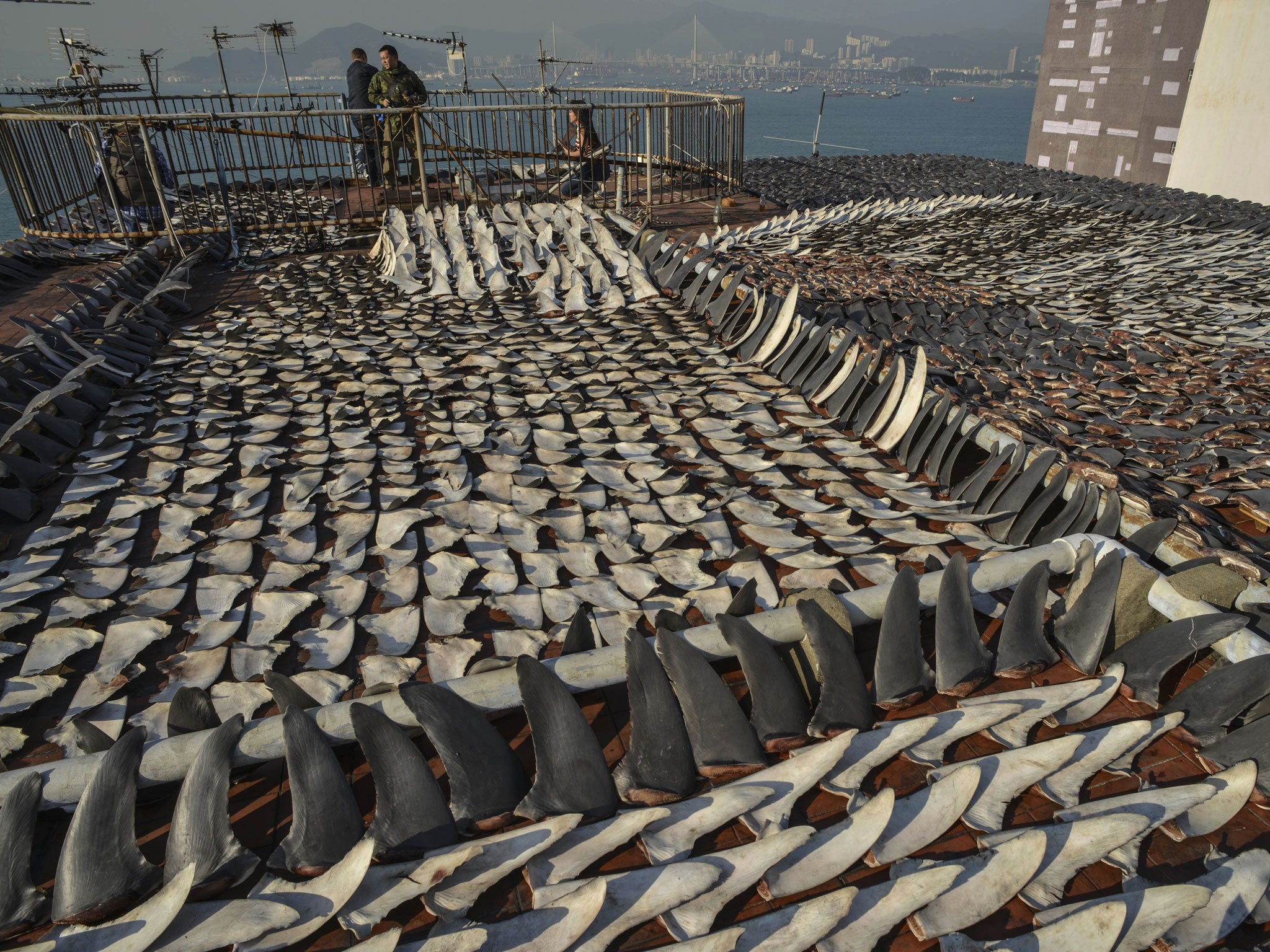The Shark Crisis Worsens

Shark caught in fishing net. Photo courtesy of WWF.
The shark population has declined an alarming 71% since the 1970s, according to USA Today. Why?

One of the major contributing factors is overfishing (AKA pirate fishing) of shark fins. The fins are used to create an expensive soup called Shark Fin Soup. The fins are sold at markets for $450 a pound, and a bowl of soup goes for about $100. Even worse, there is little to no control over trading of shark meat and fins, leading to a decline in species like the oceanic whitetip, porbeagle, and smooth hammerhead.
Overfishing occurs when fish are being taken from their habitat at a much faster rate than their population can replenish. The rate at which sharks are being hunted is much greater than the rate at which a shark matures. This means that shark populations cannot replenish quickly enough to balance out the sharks being killed. The more they are overfished, the more their chances of extinction grow. The most overfished place in the world (in general) is the Mediterranean, where 62% of fish are overfished and are considered at risk of being depleted, according to OCEANA. Sharks are the most hunted in China, where the demand for shark fin soup is high enough to make it on the wedding menu, according to Aljazeera.
Overfishing also destroys the habitats of sharks, primarily reefs. The destruction of mangroves are especially harmful to younger sharks because that is where their nursing grounds stand. According to the WWF, “Some 25% of all the 494 sharks and rays inhabiting coastal continental shelves, which includes all reef sharks, are threatened with extinction.”
Reefs are destroyed in one of two ways, either directly and indirectly. Direct destruction means that threats are purposefully created to hurt the sharks such as cutting down mangroves (trees that grow along the coast of a river) or trawling fishnets being cast over reefs. An indirect cause is something that is not done on purpose, but it will still hurt the sharks. Such examples include pollution, oil spills, chemical waste, mining, and agricultural reasons.

According to an IUCN database, a study took place where 470 species of sharks were researched. Of those 470 species of sharks, 2.4 percent were Critically Endangered, 3.2 percent were Endangered, 10.3 percent were Vulnerable, and 14.4 percent were Threatened.
A whopping “100 million sharks” may be killed every year according to World Wildlife. That is equivalent to a shark being killed once every 3 or 4 seconds. If overfishing continues at this rate, sharks could go completely extinct by 2040.
Hi, my name is Mira Ivanis and I am a Senior at the WHS! This is my fourth year in the Newspaper Club. I am also part of Model UN, Debate, and Yearbook...














solange button • Mar 2, 2021 at 10:57 am
STOP!!!!!!!!!!!!!!!!!!!!!!!!!!!!!